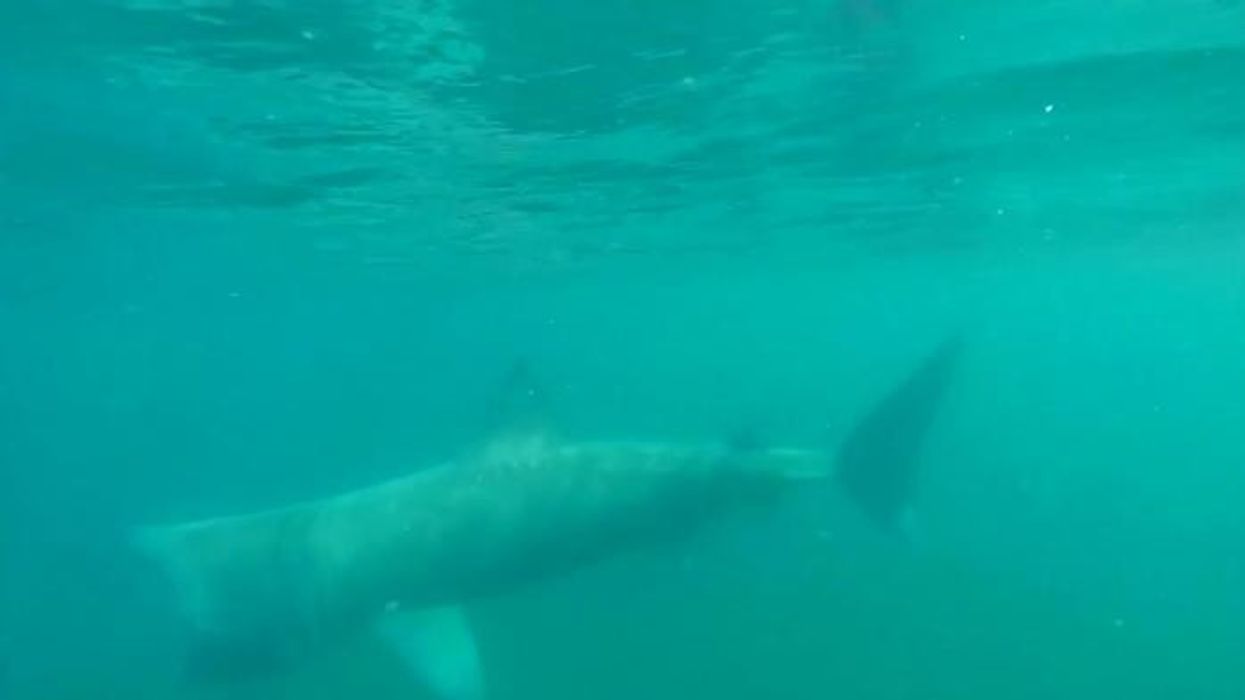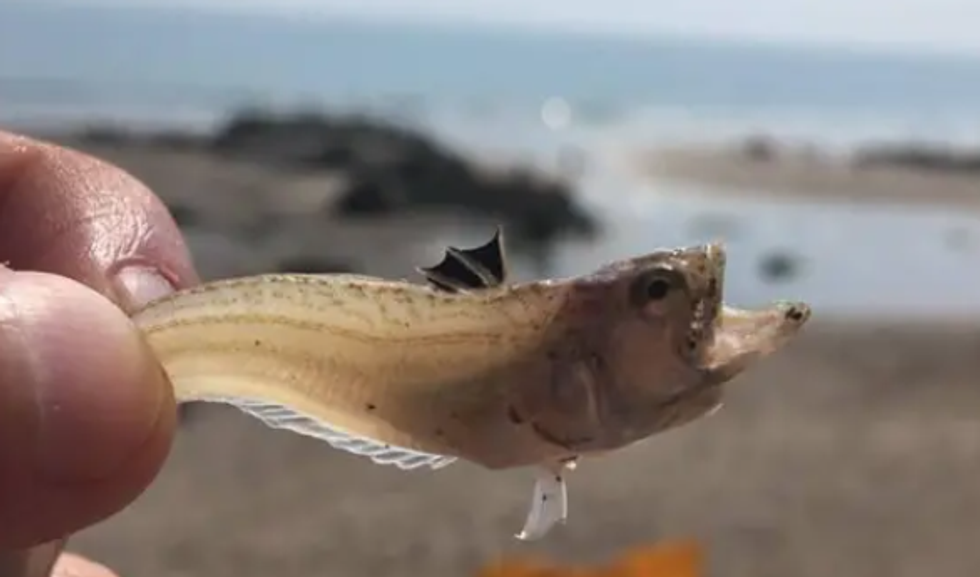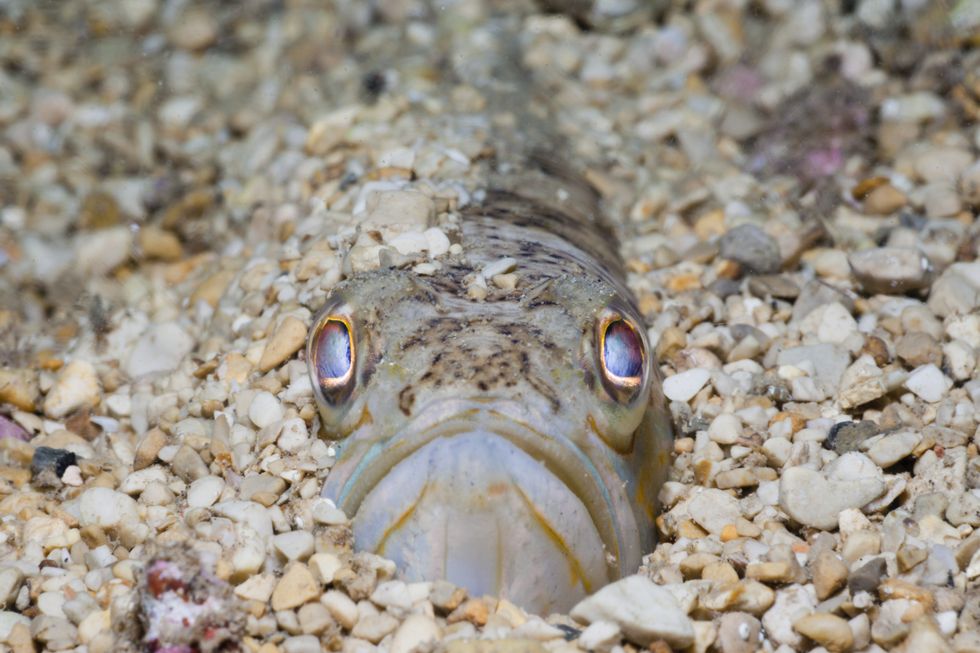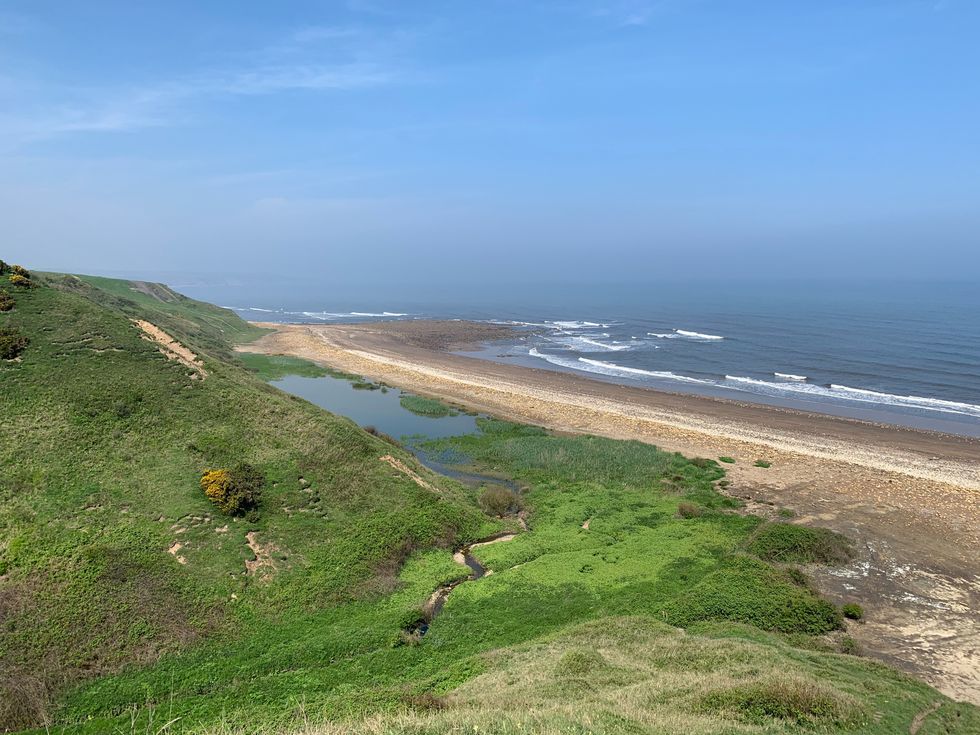RNLI issues warning over invasion of 'venomous fish' along British coastline

WATCH: Shark spotted in UK waters as children flee the sea |
GB NEWS

Weever fish burrow into sand in warm shallow water and have spiny backs that can puncture skin
Don't Miss
Most Read
Trending on GB News
Britain's coastline is seeing an increase in paddlers and swimmers being stung by venomous fish, a lifeguard has warned.
The Royal National Lifeboat Institution issued the warning over weever fish on England's north-east coast from Teesside up to Tynemouth.
They confirmed it had "seen an increase in the number of incidents involving weever fish this summer" along the North East.
The species of fish, which are native to UK waters and are commonly reported on Britain's shores, have spiny backs that can puncture the soles of feet, causing significant pain.
The 18cm fish burrow into sand in warm shallow water, making them difficult for swimmers and paddlers to spot.
Although painful, the fish stings do not usually cause significant harm.
The RNLI advise those stung to quickly alert a lifeguard and "they will be on hand to apply medical attention."
The increase in reported incidents is due to hot weather, according to lifeguard Rianna Manson.
LATEST DEVELOPMENTS:

Britain's coastline is seeing an increase in paddlers and swimmers being stung by venomous fish, a lifeguard has said
|RNLI
She told the BBC: "The level of pain varies between people due to each individual's pain tolerance and also due to the number of spines that punctured the skin."
"The dorsal fin contained three spines of venom, which protect the weever fish from any potential threats."
"Being stung by a weever can be painful, but it is generally nothing to worry about as it does not cause any significant damage."
Hartlepool Borough Council has reported "an increase in the number of weever fish".

Weever fish burrow into sand in warm shallow water
|GETTY
Tynemouth Volunteer Life Brigade has also warned visitors of "reports of a large number" of the venomous fish.
Beachgoers have been advised not to enter the sea barefoot and to shuffle their feet in the sand rather than stamping.
A Tynemouth Volunteer Life Brigade spokesman said: "Be extra cautious in shallow, sandy areas.
"If stung, soak the affected area in hot (not scalding) water to help relieve pain, ensure the spines are not stuck in the foot and seek medical advice if required."

Beachgoers have been advised not to enter the sea barefoot and to shuffle their feet in the sand rather than stamping
|GETTY
A spokesman for Hartlepool Council said: "In common with other areas along the coastline, we have seen an increase in the number of weever fish due to the recent warm weather.
"The fish lie under the sand on the shoreline and have venomous spines on their dorsal fins which, when stood on, puncture the skin on the foot – sometimes leaving the spine in the wound - causing a very painful sting."
Scientists have also warned that the UK could see a sharp increase in the number of endangered sharks, rays and native oysters as Britain's coastal waters are heating up.
While the UK could welcome many marine species, the changes could result in animals native to Britain struggling with the new environment.
More From GB News










